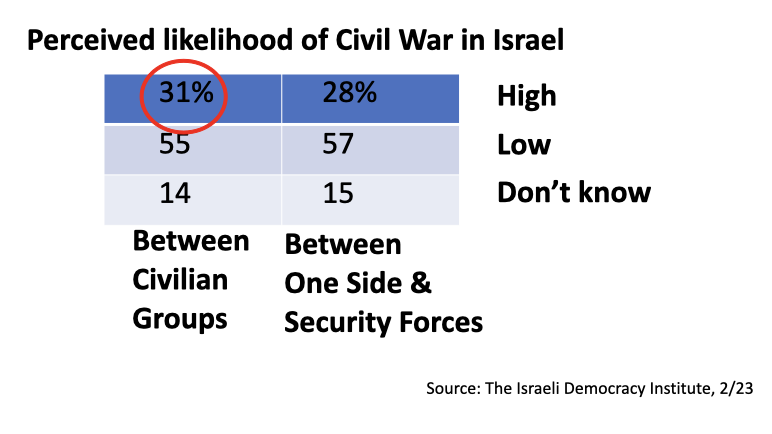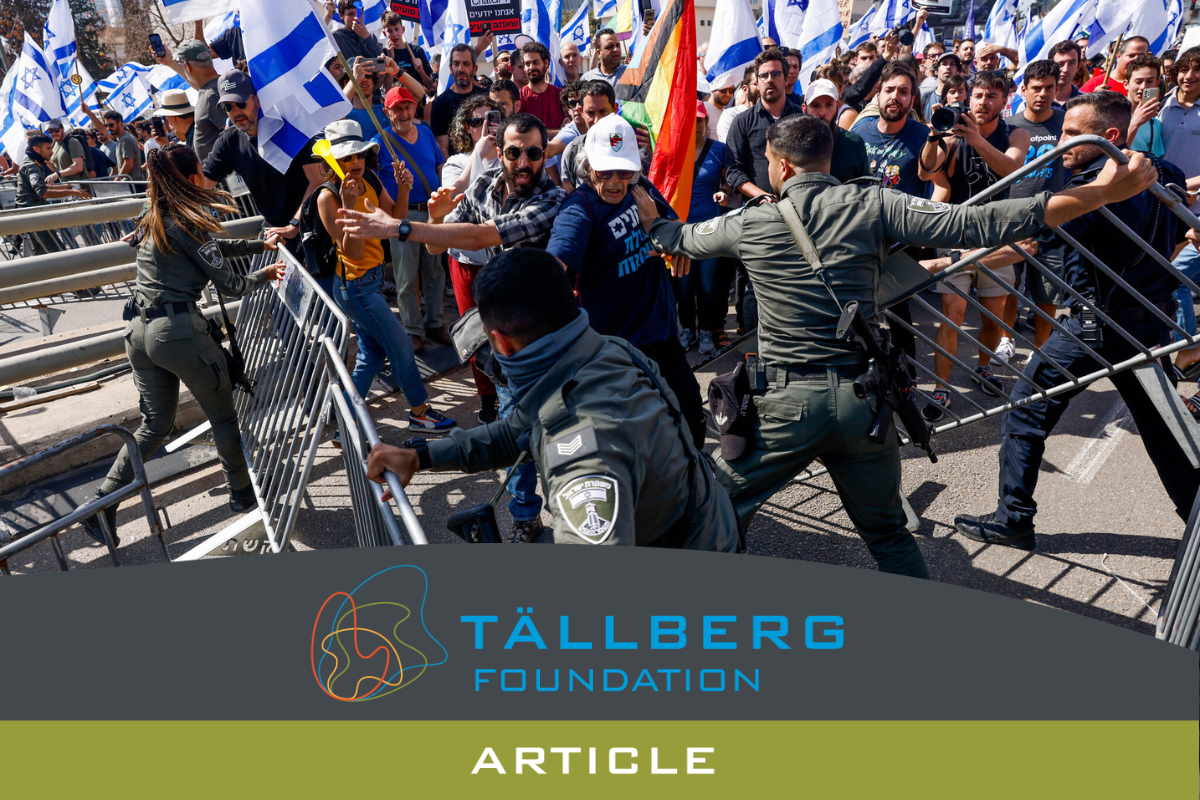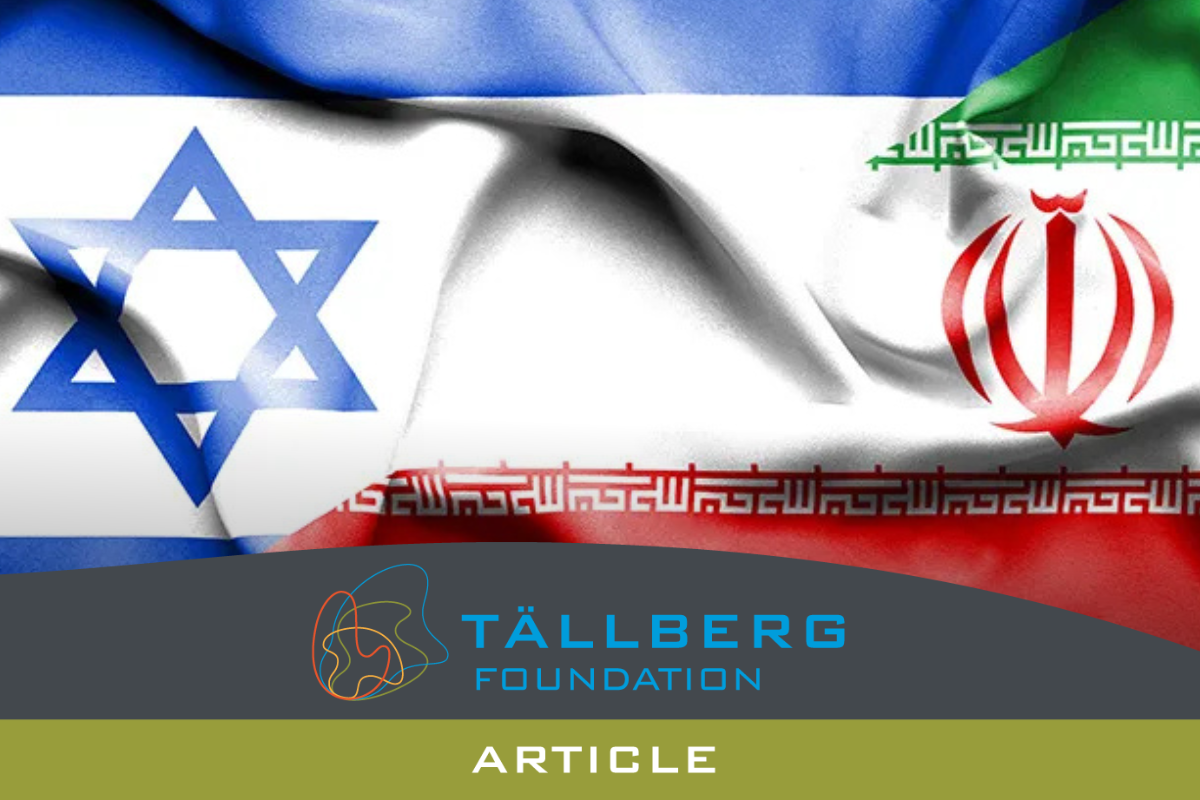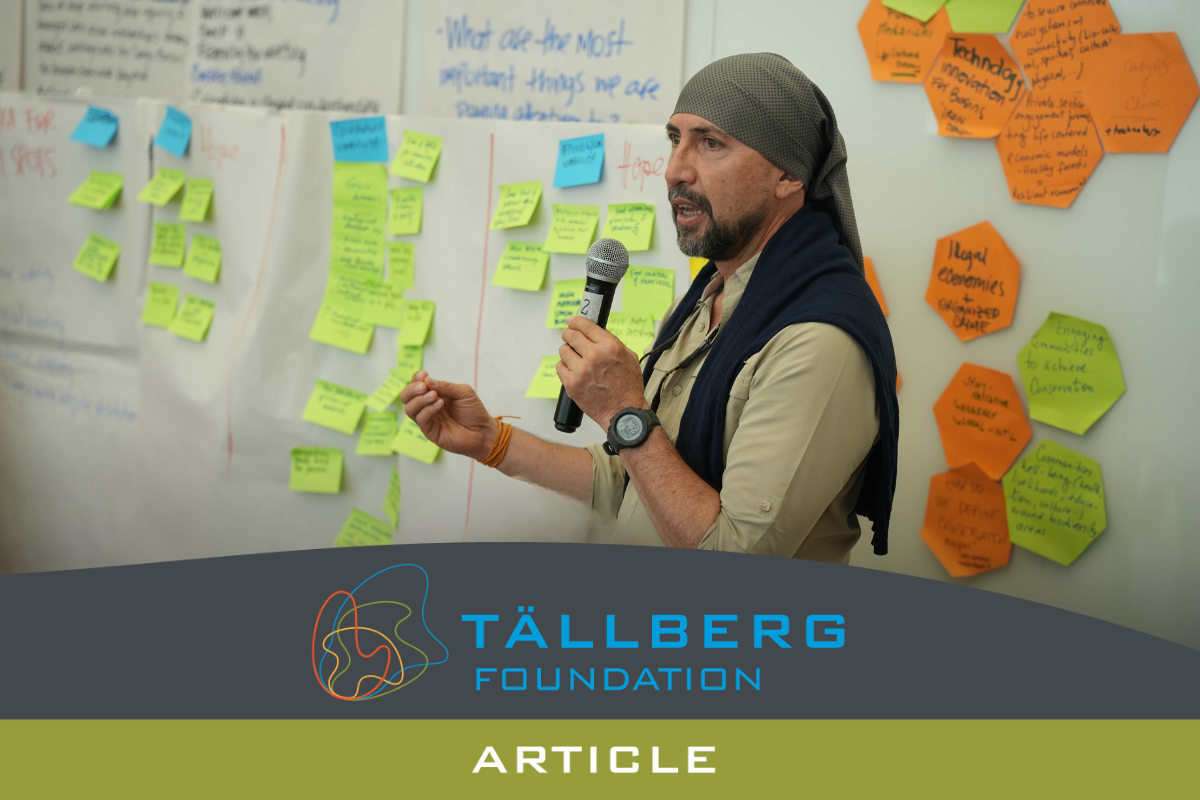Israel’s domestic crisis has only intensified since we published our podcast with journalist Neri Zilber on March 16. More protests, more violence, more international condemnation and the controversial firing of Defense Minister Gallant. Even though Prime Minister Netanyahu has now hit “Pause,” Zilber’s commentary is important; in that spirit, we invite you to revisit our conversation and to answer a question.
Do you see what’s happening in Israel as an (admittedly messy) expression of democracy or as the (perhaps inevitable) onset of autocracy in such a highly polarized society? Tell us your answer in the COMMENTS section below.
ISRAEL’S POINT OF NO RETURN
Israel is heading into yet another crisis that could threaten its existence. However, this time it’s not the Arabs or the Palestinians who are the protagonists, but the Israelis themselves. Jew against Jew; brother against brother—all driven by a proposal to impose governmental control over the country’s judiciary and legal system.
Israeli President Isaac Herzog has talked publicly about the country being “pushed off a cliff,” said “the abyss is within reach,” and has warned of a potentially “bloody civil war.” Seemingly in response, Prime Minister Bibi Netanyahu said that “Freedom to protest is not a license to drive the country to anarchy.”
Neri Zilber, an analyst and journalist covering Israel and the Middle East who recently joined “New Thinking for a New World” host Alan Stoga for a conversation about Israel, agrees. He says that politics in Israel is “a contact sport, not for the faint of heart… usually very raucous and very fractious, and sometimes violent…But we’ve never seen anything like the past few weeks.”
Civil war, he agrees, is a real possibility.
Of course, it takes two to tango. On the one side is the most recent government of Bibi Netanyahu—now the country’s longest serving prime minister, cumulatively 15 years, who returned to power in December 2022—leading what is widely viewed as the most right-wing coalition in Israeli history. As Zilber describes it, Netanyahu’s government has committed itself to rewriting the “rules of the democratic game…that would give it effectively unchecked power over the judicial branch, starting—but not ending—with the Supreme Court by imposing political control over the selection of judges.” Zilber argues that would eliminate any practical restraint on governmental action; the government would have “a blank check to pass any laws it wants, to make any decisions it wants.”
On the other side, “you have the Supreme Court, the legal and judicial system, and a whole lot of angry Israelis on the streets.” In practice that has meant weeks of increasingly violent protests, growing opposition within parts of Israel’s military reserve who threaten not to serve, and an environment where almost one-third of Israelis tell pollsters they think civil war is coming, including more than half of those who say they oppose the Netanyahu government.
 Protest is one thing; civil war another. As Zilber sees it, though, the possibility exists for something much more dangerous. “You could have a standoff, where the head of the military or the head of the police or the head of the internal security agency or the head of the Mossad makes a decision about which authority they’re listening to. Are they going to listen to the minister responsible for their organization, or are they going to listen to the judges?…That’s where things could get very dicey, and very, very dangerous.”
Protest is one thing; civil war another. As Zilber sees it, though, the possibility exists for something much more dangerous. “You could have a standoff, where the head of the military or the head of the police or the head of the internal security agency or the head of the Mossad makes a decision about which authority they’re listening to. Are they going to listen to the minister responsible for their organization, or are they going to listen to the judges?…That’s where things could get very dicey, and very, very dangerous.”
The million-dollar question is whether Bibi controls his own government. After all, the Netanyahu was long known as a pragmatic leader, as someone who got things done, rather than as a rabble rouser. Zilber said the Prime Minister used to be “pragmatic and moderate” but now he considers him a “tinpot dictator.” The question remains whether Netanyahu is leading the charge or merely trying to keep up with some “unsavory and quite extreme political leaders” who are important parts of the governing coalition and who have their own radical agendas.
There may be another, equally unsavory aspect to Bibi’s new found antagonism for the judiciary. Zilber points out that, although Bibi has referred to the Israeli Supreme Court as the “body armor for Israeli democracy” his corruption case is still on trial in Jerusalem district court. That could give the Prime Minister a “strong personal motivation to go after the judicial system.”
What are the odds that the Netanyahu government meets the opposition halfway, standing down from its drive to impose control over the judiciary? After all there is a lot of pressure coming not only from President Herzog, domestic political opposition, and the protesters, but also from international partners including the U.S. government.
Zilber is skeptical, “given the fractured nature of Israeli politics and Israeli society.” He goes on to point out that “the previous very strong and clear majority of the mainstream secular Zionist demographic has decreased…you have growing numbers of more extreme religious nationalists—that is, the settlers—and, a growing demographic of ultra-orthodox Jewish Israelis.” In other words, the hard line of Bibi’s government reflects the hard line of its political base, which is now the (bare) majority.
How does democracy work in such a highly polarized, fractured society? Zilber fears that it doesn’t. “For many in this Netanyahu coalition, there’s a growing sense that democracy doesn’t have to be liberal. That you can have illiberal democracy, a Jewish democracy, where Jewish rights and Jewish identity are elevated over things like liberal values and minority rights, especially vis-a-vis Arabs and Palestinians. The will of the majority—the will of the Jewish majority—should take precedence over anything else…Now, you can call that many things, but it’s not a democracy. It’s a tyranny of the majority.”
The irony is not lost on Zilber that, “in many respects, Israelis have become more Palestinian.” By that he means that many Israelis are now “facing the real prospect of living under a government or regime that they have no real control or say over.”
The bottom line? “There’s a real sense this country is going off the rails, politically and socially—and potentially in security terms as well,” says Zilber. In a recent speech, President Herzog was even more direct, “He who thinks that a real civil war, one that costs lives, is a line we won’t reach, is out of touch.”
For more of Neri Zilber, including his concerns about the possibility of a new Intifada, listen to his podcast Israel Policy Pod
Neri Zilber also recently spoke with Alan Stoga as part of the Tällberg Foundation’s “New Thinking for a New World” podcast series you can listen to it here or on a platform of your choice (Apple podcast, Spotify, Stitcher, Google podcast, Youtube, etc).
ABOUT THE GUEST
 Neri Zilber is a journalist and analyst covering Middle East politics. He is also an adjunct fellow of the Washington Institute for Near East Policy and an advisor to Israel Policy Forum, where he hosts the Israel Policy Pod.
Neri Zilber is a journalist and analyst covering Middle East politics. He is also an adjunct fellow of the Washington Institute for Near East Policy and an advisor to Israel Policy Forum, where he hosts the Israel Policy Pod.
Neri is a regular contributor to The Daily Beast, Foreign Policy, Financial Times, New Lines Magazine and The Christian Science Monitor, and his work has appeared in the New York Times, Washington Post, Politico, The Atlantic, New Republic, Guardian, Foreign Affairs, Vox, and the Globe & Mail, among other outlets.
He is the co-author of State with No Army, Army with No State: Evolution of the Palestinian Authority Security Forces 1994-2018, and the contributing author on Israel’s social protest demonstrations for The Occupy Handbook (Little, Brown), a chronicle of the global “Occupy” movement.
He holds a bachelor’s degree from the School of Foreign Service, Georgetown University and a master’s degree from the Department of War Studies, King’s College London.





Comment *Internal conflicts are not health for Israel stability, it air out cracs that are keenly watched by its bloody kins; The Middle East policy depends much on Israels stability.
I think that is an expression of democracy because There is a crisis of démocracy in Israel,and the government have to Work hard for the peace in the country.
Democracy itself, is tyranny of the majority. The more Israel is threatened by neighbors, the more the nationalists gain power. A deeper understanding of liberal democracy and it’s far reaching consequences is that it opens the door to all, but never allows anyone to get out.
The age long question comes to mind, “Does a fence keep you locked in, or does it keep your enemies locked out?”